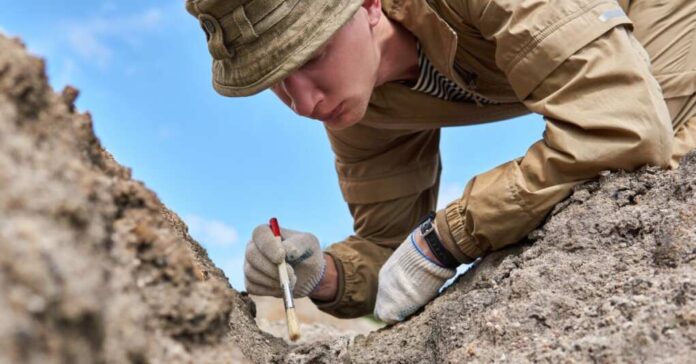
For over a hundred years now, science has been unraveling the world, one puzzle at a time, and revealing to us all sorts of so-called truths. But what happens when those truths turn out to be frauds?
Such is the case with a small lizard-like creature’s fossil that was discovered in the Italian Alps more than 90 years ago.
For nearly that long, science has claimed that this was a predecessor to dinosaurs, supposedly killed some 280 million or so years ago. Miraculously, the creature had been basically mummified, incredibly preserving its soft tissues.
However, according to a recent study of the creature with more modern equipment proves that it isn’t nearly what they had been led to believe.
Named the Tridentinosaurus antiqus, it was thought that this was the oldest “mummy” fossil ever found. As such, it could offer a lot of truths to the world and into the biology of prehistoric reptiles.
But when a team led by Valentina Rossi at the University of Cork got to look at the creature, some oddities were noticed.
For starters, an ultraviolet light revealed a sort of coating over the entire fossil, like a varnish or lacquer. Clearly, it was used to enhance the fossil’s appearance.
Put the "pseudo" label where it belongs. Fossil that Scientists have studied for 90+ years turns out to be fake.
They even named it "Tridentinosaurus antiquus" and claimed it was a reptile from a time before dinosaurs.
However, the recent analysis revealed that the black… pic.twitter.com/FQtsYjTKdc
— Ancient Hypotheses (@AncientEpoch) March 6, 2024
Then, when an X-ray was applied, no traces of the original organic matter under this coating were found.
Naturally, the team had hoped that, even with the coating present, perhaps they would be able to extract some of its supposedly pristine soft tissues, which could lead to answers about the animal’s coloration, physiology, and anatomy. But nothing was there.
Now, it does appear that the hindlimb bones of the fossil are real. In fact, tiny bony scales were found, adding more of a confirmation of the creature’s lizard-relations. Additionally, tail drag marks and footprints from the same era reveal a similarity.
But the rest of the creature seems to be a complete and utter farce.
So much for changing the world one fossil at a time.














